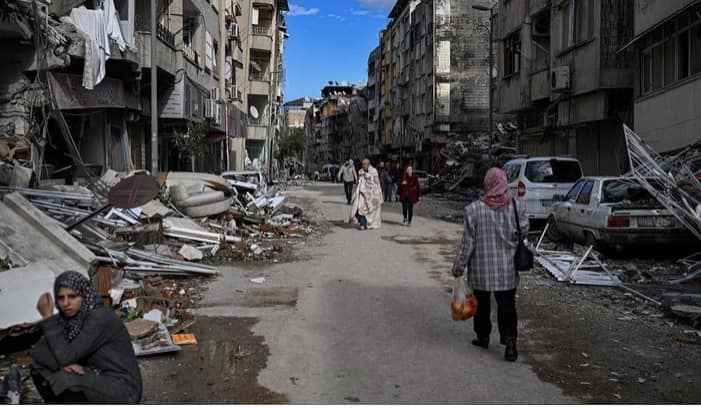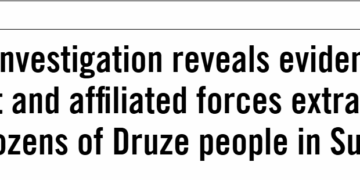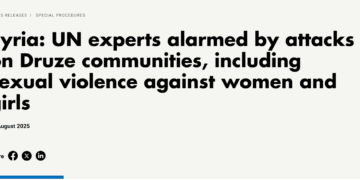In response to the emergency caused by the earthquake that struck parts of northern and northwestern Syria on February 6th, the Syrian Feminist Lobby joined the working group of Syrian feminist organizations for emergencies. This group of women’s organizations aimed to contribute to alleviating the impact of the disaster on the ground in the affected areas.
Through the work of the Syrian women’s organizations for emergencies, a joint message was prepared and sent to the active international actors, where the lobby sent several letters to the international community based on the needs we received from those affected by the earthquake. The lobby’s letters focused on ensuring aid delivery to the afflicted.
On the 21st of February 2023, the Syrian Feminist Lobby organized an emergency meeting for Syrian feminist organizations. During this meeting, short-term and medium-term action strategies were developed to respond to the earthquake and meet women’s and the community’s needs. The goal was also to enhance the perspectives of feminist organizations, enabling them to contribute to addressing the current requirements in addition to their ongoing feminist work and activities.
The need for advocacy was stressed to support the affected community and shed light on the UN and the international community’s shortcomings in delivering assistance. Emphasizing the challenges women are facing in the inflicted areas and the necessity to resettle Syrian refugees in the more stable countries of the world, the political exploitation of the disaster by the Assad regime, and the need to hold the government accountable for the crimes it has committed against the Syrian people and not allowing it to be normalized and given another chance. The potential long-term impact of the earthquake on Syrian society and civil work was reviewed, with an emphasis on the necessity for the United Nations to assume its role in supervision and monitoring rather than solely burdening civil society organizations with the responsibility. The failure of aid management in regime-controlled areas and the role of the United Nations in monitoring theft and exploitation were also addressed, and the file of enforced disappearance was discussed.
The lobby has made several correspondences and online meetings with International and diplomatic bodies such as the USA, the UK, the Office of the International Envoy, the Independent International Commission of Inquiry on Syria, the Office of the High Commissioner for Human Rights, the International, Impartial and Independent Mechanism in Syria, Impunity watch, and others. The need for more effective support and direct supervision by the United Nations in distributing aid and dealing with the requirements of civilians in all affected Syrian cities was stressed. The lobby expressed its concern regarding some countries’ endeavor to restore their relations with the Assad regime under the pretext of the tragedy and the need to raise voices to hold war criminals accountable and condemn normalization with the Assad regime, which benefited politically from the humanitarian catastrophe that befell Syria. We emphasized that justice is the only way to achieve sustainable peace in Syria.
The lobby had communicated with the US State Department. It demanded that aid be delivered to the afflicted areas and that the United States take a clear stance on refusing normalization with the Assad regime. Normalization would give criminals worldwide a license to commit crimes of the magnitude of those that Assad did. The US State Department responded positively and with understanding to our concerns with the promise to make more efforts and continue to work with allies, partners, and the United Nations to respond to the humanitarian catastrophe and reach a permanent political solution under international resolutions.
The Syrian Feminist lobby met twice during the last phase with the office of the international envoy, where they demanded the office of the United Nations Special Envoy for Syria to exert pressure to open the crossings and deliver aid to all the affected areas, specifically northwestern Syria, which did not receive the required assistance to meet the needs of civilians. Criticism was also expressed towards the United Nations for falling short in delivering aid, especially to northwest Syria, and for not adequately considering women’s needs in the UN’s aid efforts and its supervisory role in distribution across Syria. In addition to focusing on achieving a sustainable political solution, achieving transitional justice for the Syrians, preventing the regime from being normalized, ensuring accountability for war criminals, clarifying the fate of the missing, and releasing detainees.




